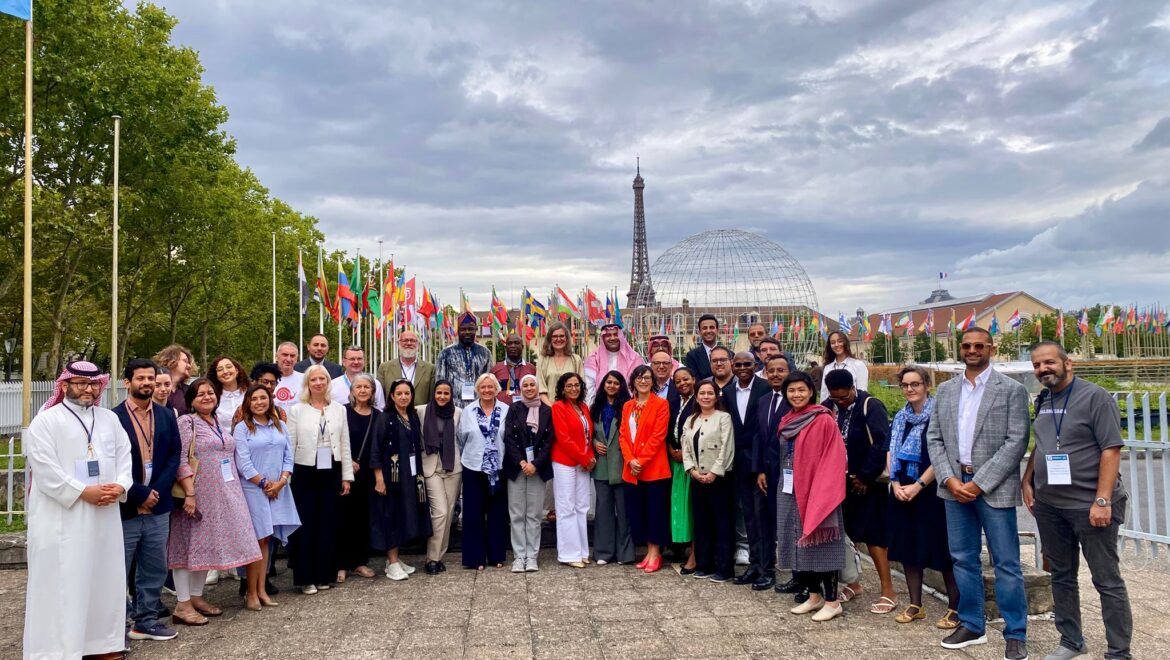UNESCO Headquarters, Paris, 22–23 July 2025
IGCAT participated in a high-level international meeting co-organised by UNESCO and the Culinary Arts Commission of the Ministry of Culture of the Kingdom of Saudi Arabia, focused on the development of a Food Atlas. This initiative aims to serve as an indispensable repository of traditional knowledge, community-based practices, and culinary identities that are rapidly disappearing. The proposed Atlas is envisioned as a proactive tool that not only preserves but also empowers communities to celebrate their food heritage and assert their rights to sustainable and sovereign food systems.
Ms. Susanne Schnuttgen, Chief of Unit for Capacity Building and Heritage Policy at the 2003 Convention Secretariat of UNESCO, thanked all participants for uniting as a global community in support of this vital initiative. She stated: “By sharing how communities safeguard their foodways as living heritage, the Food Atlas project will showcase the rich diversity of this heritage, build safeguarding capacities, and in turn enhance community livelihoods and sustainable development.”
The initiative was driven by the leadership and foresight of the Culinary Arts Commission of the Ministry of Culture of the Kingdom of Saudi Arabia, which provided a timely and influential platform for dialogue among international cultural and food heritage leaders. The discussions underscored the urgent need to safeguard foodways, protect intangible cultural heritage, and ensure food justice for future generations.
Ir. Majed Almuhanna, Head of Research and Preservation of Culinary Assets at the Culinary Arts Commission, whose pioneering work on codifying ancestral recipes inspired the project, spoke of the need to build synergies among organisations working across levels to preserve food heritage.
Paolo di Croce, Executive Director of Slow Food, delivered a keynote address highlighting the critical urgency of protecting the world’s diverse foodways. He noted that the Ark of Taste has documented over 6,000 food products at risk of extinction and in need of protection. He stressed the importance of robust criteria while also encouraging broader participation in the documentation process.
Dr. Diane Dodd, President of IGCAT, offered strong support for the Food Atlas initiative, recognising it as a vital tool in the global effort to document, preserve, and promote traditional food cultures. She shared examples of IGCAT’s work, including the World Regions of Gastronomy, the World Food Gift Challenge, and Top Foodie Websites, all aimed at supporting micro-enterprises, job creation, and creativity — thereby enhancing the value of a region’s culinary assets. She added: “We have a responsibility not just to document foodways, but to help keep them alive and relevant for future generations.”
Her intervention reaffirmed IGCAT’s longstanding commitment to cultural diversity, food education, and community empowerment.
IGCAT was also represented by Dr. Edith Szivas, IGCAT Vice-President, who offered UNESCO the organisation’s full support in both developing and disseminating the Food Atlas across their global network of experts and the awarded World and European Regions of Gastronomy.
The meeting brought together 19 international experts from leading food organisations, including:
- UNESCO;
-
The Culinary Arts Commission of Saudi Arabia;
-
Slow Food;
-
IGCAT;
- Creative Knowledge Foundation;
-
Turkish Ministry of Culture;
-
French Ministry of Culture;
-
Saudi Arabian Ministry of Culture;
-
Jordanian Ministry of Culture.
In addition, 21 international participants attended, representing universities, social enterprises, non-profit organisations, and the food private sector. In total, 40 participants took part in this dynamic and inspiring dialogue.
The discussion concluded that the Food Atlas should be:
- At the service of and respectful toward local communities;
- Engaging for younger generations, who are the future;
- Useful in supporting the diversification of cultural and creative job opportunities.
In the final session, it became clear that together we are stronger, and all participants affirmed their commitment to supporting the development of the Food Atlas by offering resources, expertise, and shared knowledge.
24 July 2025
